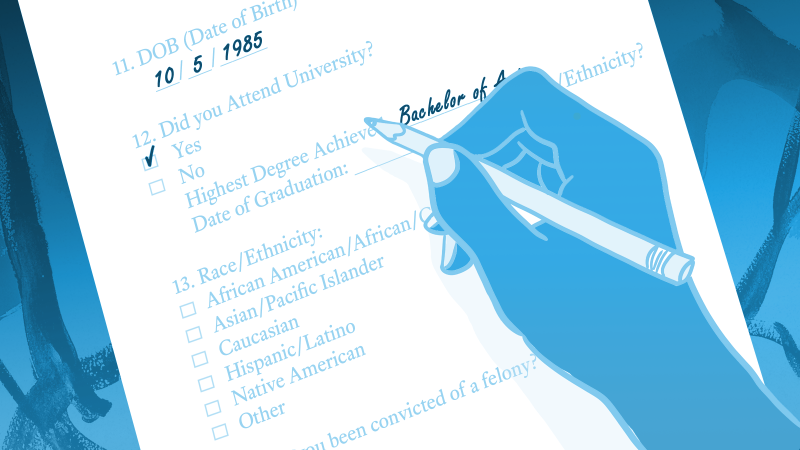Best Practices for Hiring Documents

Hiring employees can be an arduous process. What can employers do to make sure their hiring documents are compatible with federal and state law? What should be addressed in employment offers? This post will discuss best practices for job applications, employment contracts, and offer letters.
Job Postings and Applications
In the early stages of hiring, employers should be careful not to ask questions or post requirements that are discriminatory. For example, while it is permissible to require a criminal and credit history check once an offer has been made, it is not permissible to tell a job candidate that if she is convicted of a crime she need not apply for the job.
Additionally, under federal and state law, employers are prohibited from discriminating against job candidates because of medical disabilities. The job application should be free of disability-related questions. Other protected areas include marital status, gender, age, national origin, and citizenship. The job application should usually not ask a candidate any questions related to these topics.
Employment Contracts and Offer Letters
Often an offer letter is not used in an at-will jurisdiction because of the possibility that it will create a contract, and employment contracts are often reserved for high level executives.
When they are used, employment contracts or offer letters should clearly address whether the employment is at-will or for a contracted period of time. They should also address the grounds on which an organization can terminate an employee. A contract should state whether the terminated employee is eligible for compensation if terminated before the contract term is ended. If an employee can only be fired for cause, what are the causes that result in termination?
An employment contract or offer letter should also address compensation, including issues like the following. What is the base salary? Does the base salary increase each year? Is there an opportunity to earn bonuses? Are bonuses discretionary? Is the employee’s position eligible for overtime pay and is this clearly delineated?
The offer letter will address the scope of the employment and may discuss the following questions. What is the job title? What are the employee’s responsibilities? Can the employee be demoted? What is the place of employment? Can the employee be relocated unilaterally or only with consent? Is the employee allowed to be involved in other activities? Are there benefits?
Employers also ought to consider whether a dispute resolution clause should be included in the offer letter, or possibly in other documentation such as policies.
Finally, employers should consider whether confidentiality clauses should be included in the job offer. When does the confidentiality requirement end? What is considered confidential? Employees should not be prohibited from discussing compensation. It is disfavored under federal law. Also, certain types of information are not considered confidential, such as information that is publicly known or obtained from a third party.
Conclusion
There are a number of things to consider when drafting job application materials and offer letters or contracts. For specific employment law questions related to hiring documents, employers should reach out to experienced legal counsel.
_________________________________________
Featured Image by Rebecca Sidebotham.
Because of the generality of the information on this site, it may not apply to a given place, time, or set of facts. It is not intended to be legal advice, and should not be acted upon without specific legal advice based on particular situations
